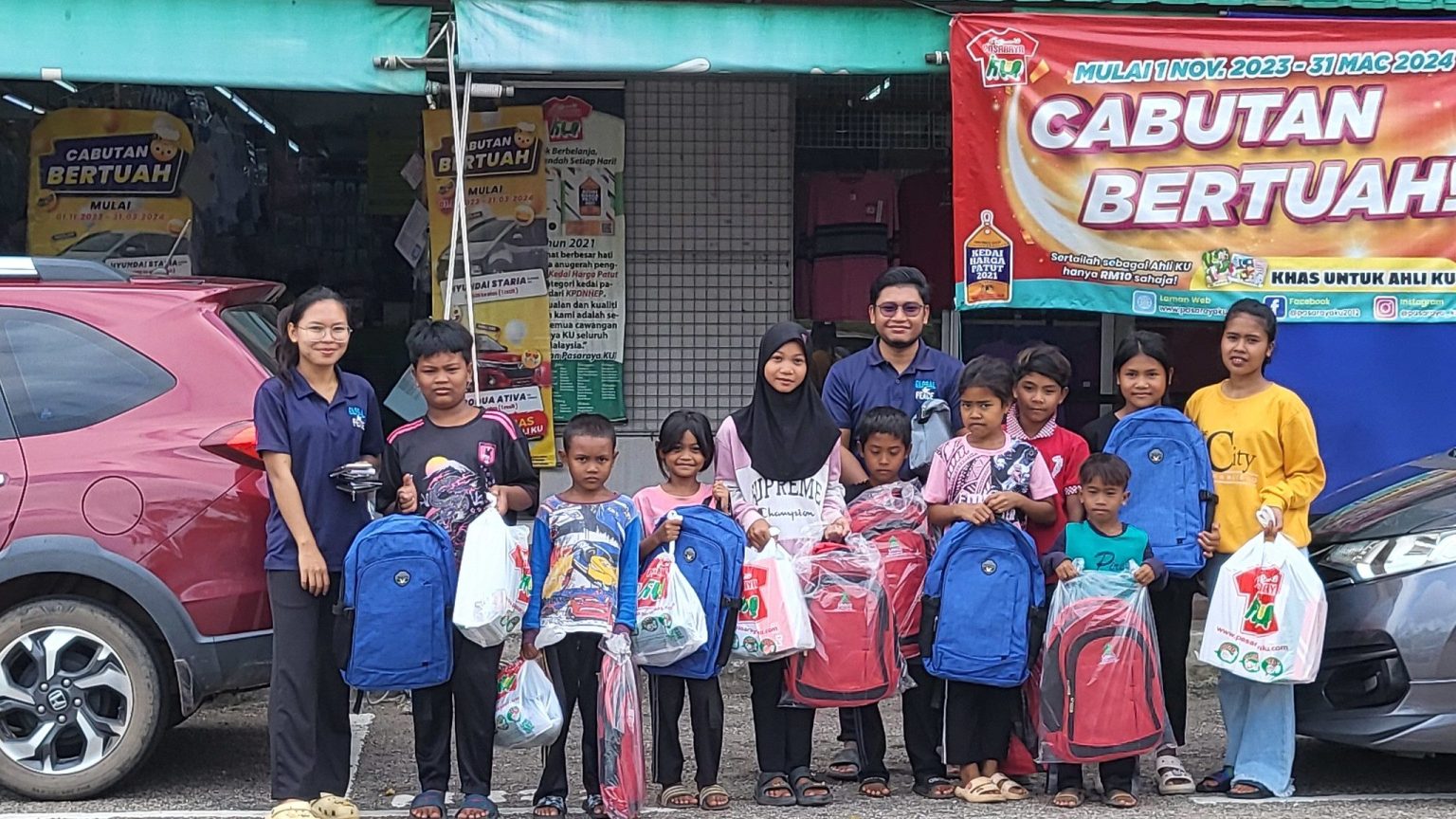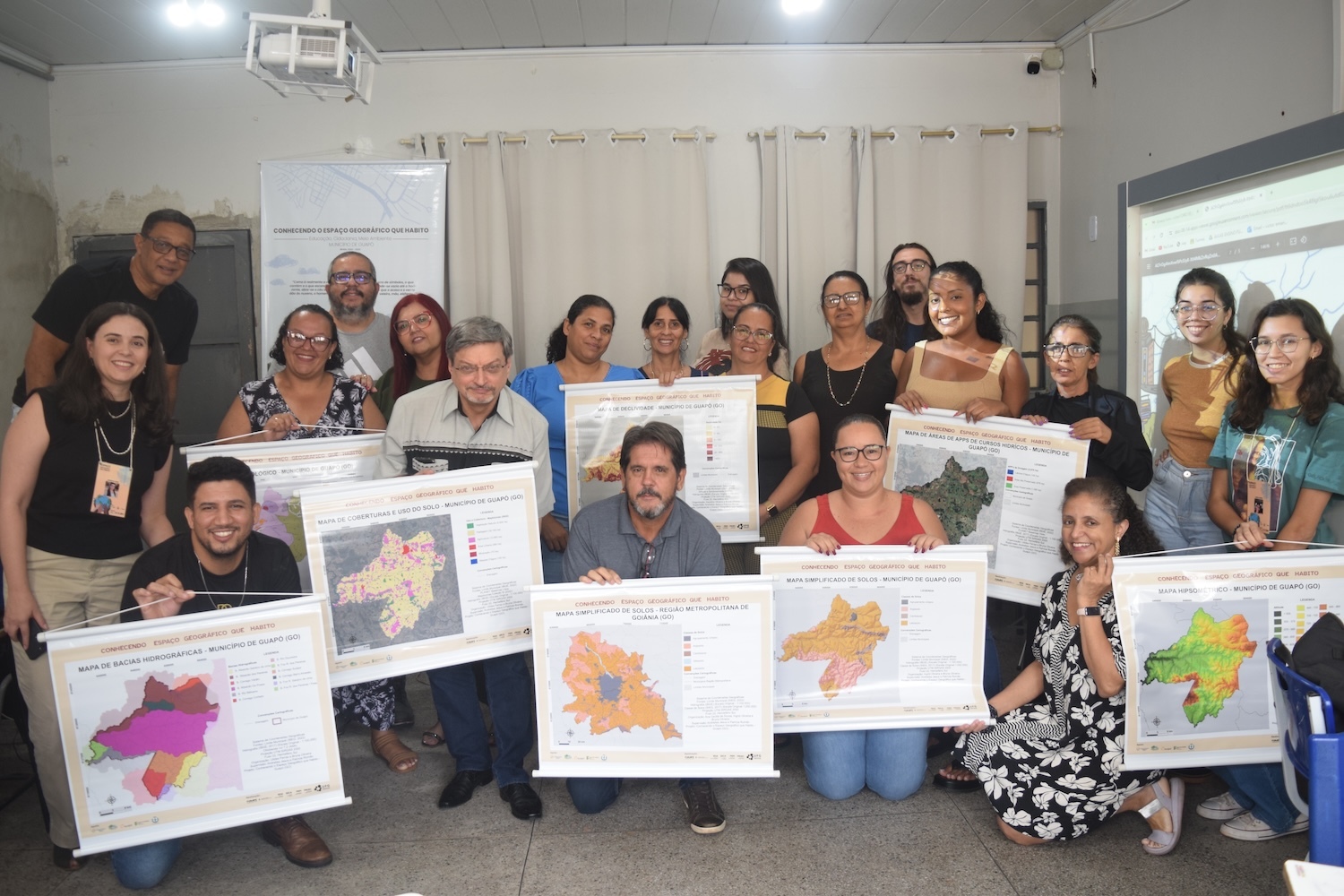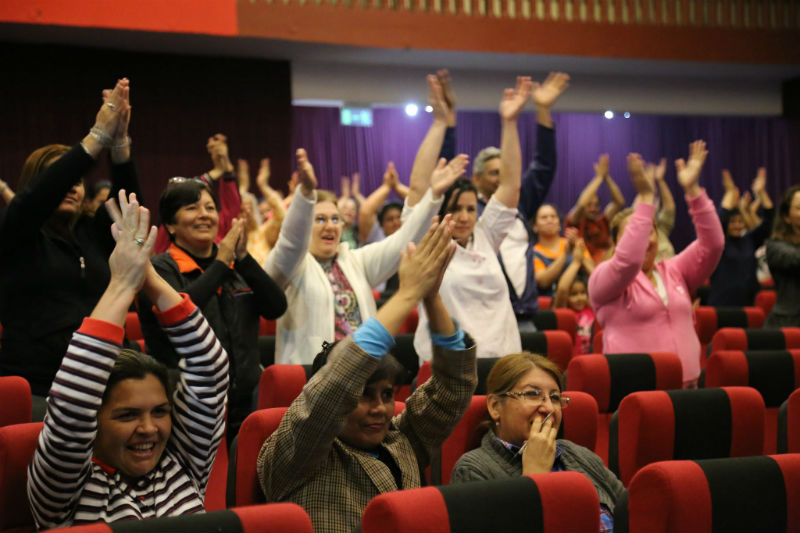‘Global Citizenship,’ Character Competencies Are Crucial to Transform Education Say International Educators
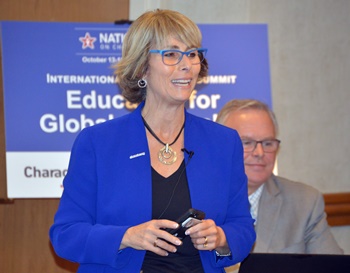
Character.org moderator Dara Feldman welcomes panelists and participants to the International Character Summit in Washington, DC.
How well are schools providing youth with relevant education needed to ensure that graduates are equipped for the modern workplace? How well are twenty-first-century competencies—such as critical thinking, creativity, entrepreneurship, leadership, collaboration, problem-solving, and character building—being mastered to meet the challenges of an increasingly competitive and interdependent global society?
These and other questions were brought into focus at the Fifth International Character Summit on October, 13, 2016, “Educating for Global Citizenship.” The Summit was hosted by Character.org, the Global Peace Foundation, and One World United on the first day of a three-day National Forum on Character Education.
Panelists from the three sponsoring organizations described their international efforts to integrate character competencies, intercultural dialogue, entrepreneurship and service learning into school culture to transform education globally. Dr. Tony Devine, Vice President of Education, Global Peace Foundation, said countries and ministries of education are increasingly realizing how important character competencies are to support social and political stability and counter corruption.
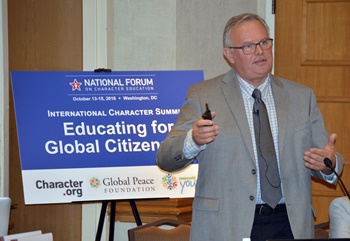
Dr. Tony Devine, vice president of Education, Global Peace Foundation, underscores the importance of making education relevant to twenty-first century workplace and civil society needs.
“We have moved from the knowledge worker to the relationship worker,” Dr. Devine said. “Unfortunately, there is a mismatch between education and the demands of the modern workforce.” He cited a recent Gallup poll that found 96 percent of key educators were “extremely confident” about preparing students for the modern workforce, yet only 11 percent of business executives believe that recent graduates have the skills and competencies that are needed for success in the workplace.
Devine said the Global Peace Foundation’s (GPF) Character and Creativity Initiative in eight countries seeks to transform school culture by empowering principals, teachers, and students with the tools to model twenty-first century competencies in their classrooms and beyond. “Certain proficiencies are needed in the workplace,” he told the summit, “such as integrity, respect, resilience, conscientiousness, creativity, and innovation. These intangibles account for about 80 percent how successful a young person will be in life and work. We are trying to raise the total child not just the cognitive child.”
Devine described another GPF-backed program, called Leap Hubs, which are Leadership and Entrepreneurship incubators in public high schools where highly motivated students are mentored to launch businesses and social enterprises. After three years of testing, piloting and full implementation Leap Hubs are in schools across Kenya with more than 120 innovative ideas in development and 11 are launched or launching.
“We have to recognize that education is a complex undertaking,” Devine concluded. “Organizations too often work separately. What we advocate is public, private, and social partnerships among schools, governments, nonprofits, and the business community. This can have more impact. There are so many problems to solve in the developing world, unlimited problems that need entrepreneurship and innovative, ethical leadership.”
Preparing Global Citizens
Educators have an essential role to prepare youth to live in a transforming, ever-changing world, to foster the skills needed to thrive and contribute as global citizens, said Claire Lorentzen, the U.S. Education Manager at Generation Global, a project of The Tony Blair Faith Foundation. “We believe that providing skills to dialogue is one of the most important ways of countering religious conflict.”
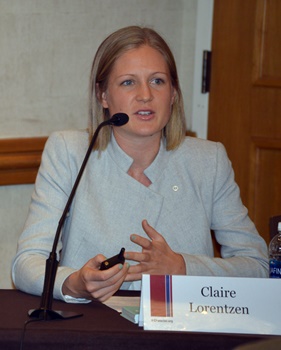
U.S. Education Director of Generation Global Claire Lorentzen describes efforts to open cross- cultural dialogue through video conferencing among schools in different countries.
She said Generation Global works in 20 countries and is responding to the lack of knowledge among peoples of different cultures, traditions, values and beliefs, who have little or no opportunity to develop global citizenship skills and engage in dialogue or learn about the experience of others.
The core of the program is a toolkit called Essentials of Dialogue. “The purpose of the Toolkit is to introduce skills of respectful dialogue,” Lorentzen said. “Dialogue is an exchange where there is no winner of loser. It is an empowering process where you learn to have a voice.”
Generation Global uses live video conferences to connect classrooms across the world, allowing students to explore, articulate, and develop their own views, with trained facilitators assisting cross-cultural encounters. Students from around the world also work in small “virtual” groups, sharing their views and engaging in dialogue on prearranged topics.
“Dialogue is at the heart of the program,” Lorentzen stressed, assisting students to explore issues of culture, identity, beliefs, values, and attitudes on a path toward global citizenship.
Empowering Youth in a Changing World
“Educators are challenged today perhaps as never before,” said panelist Joe Carvin, founder and CEO of One World United, an organization committed to improving human understanding and cooperation. “Consider that students entering school today will be retiring in the year 2076. We really don’t have any idea what the world is going to look like in 2026 or 2036. In the old days you go to college and get a job; now you go to college and have to create your own job. So we are trying to prepare youth for a lifetime of change, for a hyper-competitive global economy and global society.”
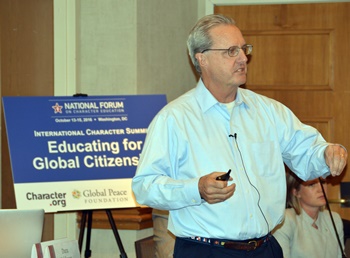
One World United CEO Joe Carvin said the pace of change in the modern world presents unique challenges to educators to emphasize character development and interdependence.
He said One World’s objectives were to do three things: provide a worldview to help youth navigate our interdependent world; support character education to provide a moral compass to navigate through a changing world, and provide opportunities through service learning to become positive change agents in the local, national and global community.
“Interconnection has profound impact on business,” Carvin explained, citing paradigm-changing businesses such as Air BNB, the world’s largest accommodation provider with no beds; Uber, the largest taxi provider with no cars; Facebook, the largest media company with no content; and Amazon, the largest retailer with no inventory.
“Global society will flourish or perish depending on our ability to come together on shared objectives,” he said. “Our Global Youth Clubs, which operate in 25 schools in 6 different countries, are designed to build a global community of leaders of character.”
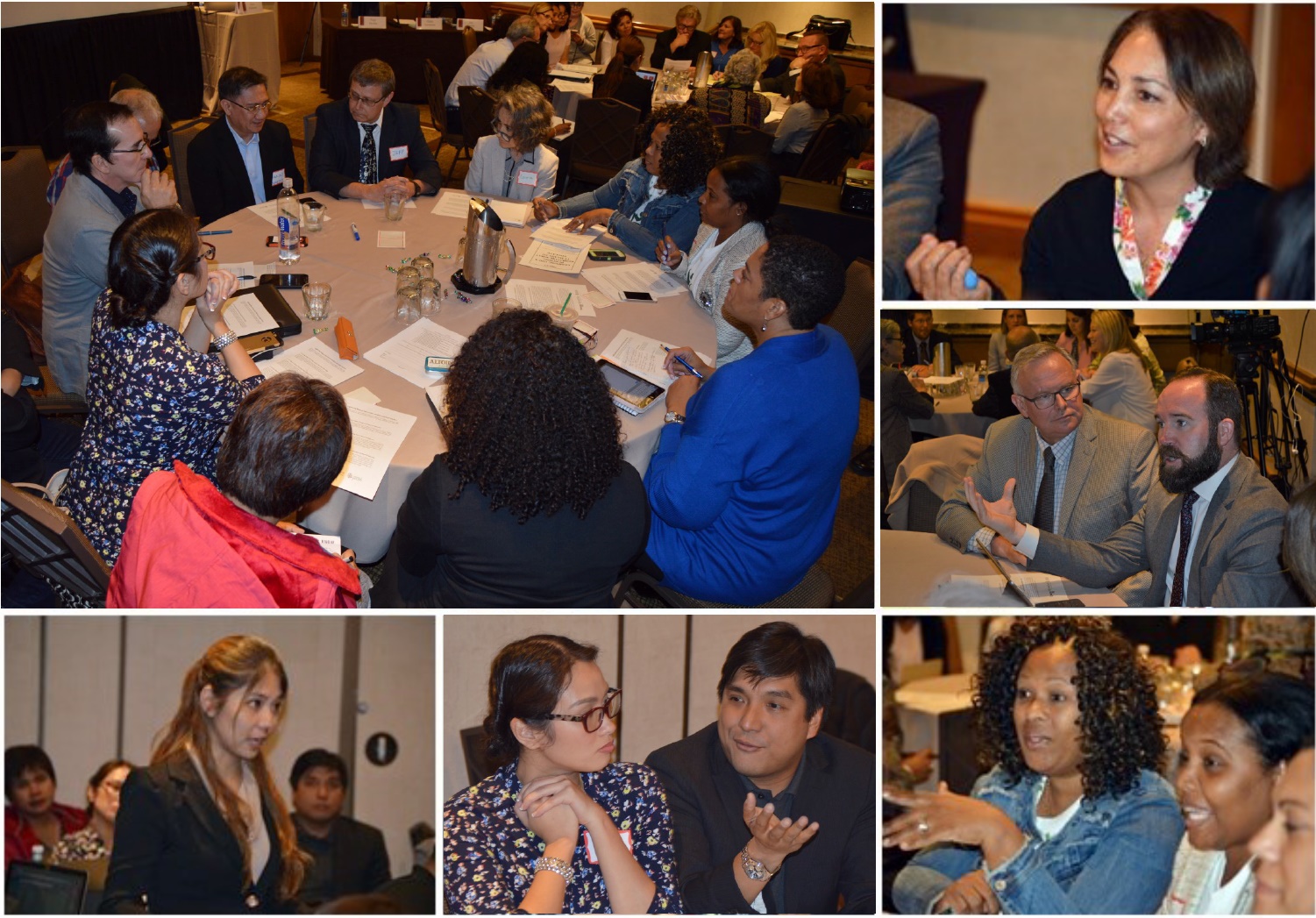
Breakout sessions enable educators to tackle critical issues and forge consensus of approaches to transforming education.
Following these presentations, educators at the summit joined breakout sessions to interactively explore key approaches to transforming education to meet global challenges, including Driving Change with Public, Private and Social Partnerships; Learning for a Purpose: Reshaping What It Means to Educate by Educating the Total Child; Creating Value though Entrepreneurship, Leadership and Digital Learning; and Re-imagining Principal and Teacher Leadership Development.
Toward an Alliance to Transform Education
Concluding the summit, author and character education instructor Maricarmen Esper announced plans by Global Peace Foundation, Character.org and One World United for the launch of an Alliance to Transform Education in the coming year, consolidating the efforts of local, regional and international organizations working independently, but with many shared objectives.
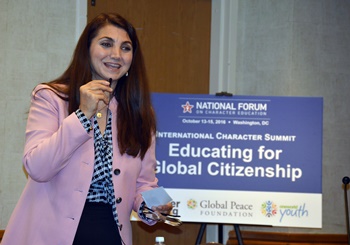
Character education instructor Maricarmen Esper announces plans for the launch of an Alliance to Transform Education in the coming year.
“Our main goal is to aggregate participants’ strengths to achieve goals that cannot be achieved individually,” she said. “When people get together for a great purpose the value of each generates greater strength to make the desired change. We know that unity is strength, so if we unite all our efforts and talents we can do a great thing for education.”
The Alliance will work to increase the impact of innovation and transformation in education; stimulate entrepreneurship, creativity and discovery to provide networking opportunities to facilitate collaboration; integrate shared universal values as a basis for cross-cultural understanding; and highlight the relevancy of global citizenship as a twenty-first century education outcome.
For more information on the “Educating for Global Citizenship” conference, visit character.org.

